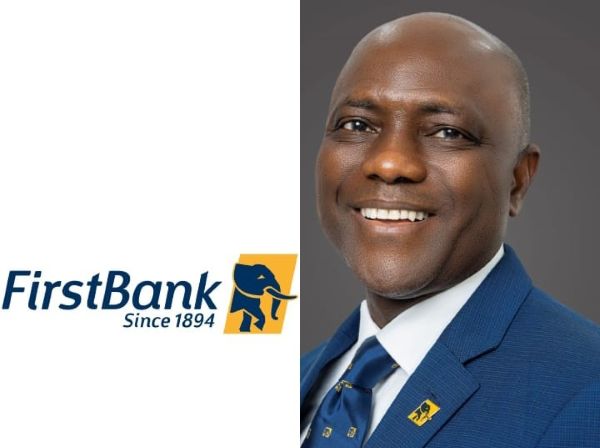FirstBank to support non-oil exports with innovation
 FirstBank of Nigeria Ltd. has pledged to support the country’s non-oil export sector with innovative products, partnerships, and platforms to drive sustainable growth in 2025.
FirstBank of Nigeria Ltd. has pledged to support the country’s non-oil export sector with innovative products, partnerships, and platforms to drive sustainable growth in 2025.
The Managing Director of FirstBank, Mr Olusegun Alebiosu, made the commitment on Thursday at the first edition of the bank’s quarterly Export Webinar.
First Bank customers fear ‘GHL crisis’, seek speedy resolution
The webinar was themed ‘From Nigeria to the World: Navigating Complexities in Non-Oil Exports.’
He said the event was a key initiative aimed at promoting best practices in export trade to enhance Nigeria’s economic growth and sustainability.
“At FirstBank, we recognise the critical role of non-oil exports in diversifying Nigeria’s economy, reducing dependence on oil revenue, and strengthening our global competitiveness,” he said.
He said the theme was designed to educate the bank’s customers, clients, and stakeholders on emerging opportunities, challenges, and best global practices.
According to him, the objective is to equip stakeholders with knowledge, tools, and strategies to navigate export trade opportunities and challenges effectively.
Alebiosu said the programme highlighted FirstBank’s unwavering commitment to tailored financial solutions, client engagement, and economic transformation.
“We will update you on our initiatives for the year and introduce modern solutions to drive the growth of the non-oil export sector in 2025.
“Be assured of our dedication to supporting Nigerian export companies with innovative products, partnerships, and platforms for sustainable growth,” he said.
The Managing Director encouraged participants to maximise the platform to learn, network, and collaborate.
“Together, we can unlock new possibilities, strengthen our competitive edge, and contribute meaningfully to the growth of Nigeria’s non-oil export sector,” he said.
Dr William Kanya, Acting Director, Trade and Exchange at the Central Bank of Nigeria (CBN), spoke on the apex bank’s commitment to supporting non-oil exports.
Kanya outlined measures and collaborations with deposit money banks and regulators to ensure timely payment of export proceeds and proper pricing.
Delivering a keynote, Nonye Ayeni, Executive Director/CEO of the Nigerian Export Promotion Council (NEPC), said Nigeria has vast export potential that can be harnessed through collaboration.
Ayeni stressed the importance of proper documentation and highlighted mentorship programmes available to exporters, which are regularly advertised.
She provided insights on accessing international markets and meeting global standards and compliance requirements.
Also, Prof. Mojisola Adeyeye, Director General of NAFDAC, detailed challenges leading to product rejections in international markets and how the agency has addressed them.
She said Nigeria recorded 335 rejection notifications between 2018 and 2024, but the numbers have since declined due to NAFDAC’s regulatory efforts.
“It is noteworthy that no NAFDAC-regulated product certified for export has been rejected.
“Exporters must obtain NAFDAC export certificates to avoid rejection, which leads to financial loss and reduces foreign exchange earnings,” she explained.
While answering questions, she said the overlap between NAFDAC and the Standards Organisation of Nigeria (SON) was being addressed through a committee.
Dr Ifeanyi Okeke, Director General of SON, outlined export product requirements and the agency’s initiatives for seamless export processing.
Represented by Mr Olalekan Omoniyi, a Deputy Director, he explained SON’s role in export regulation and the enabling laws guiding its operations.
He listed benefits of compliance, including improved product acceptability, reduced rejection rates, and better access to international markets.
Alhaji M. Adeniji, Managing Director/CEO of Starlink Global & Ideal, shared his experience in exporting cocoa, cashew, and other agro-produce.
Adeniji emphasised that strict adherence to quality standards and honesty is key to gaining international buyers’ confidence and ensuring long-term business relationships.
Other participants urged regulatory agencies to streamline their functions and collaborate more to simplify export procedures for Nigerian exporters.









